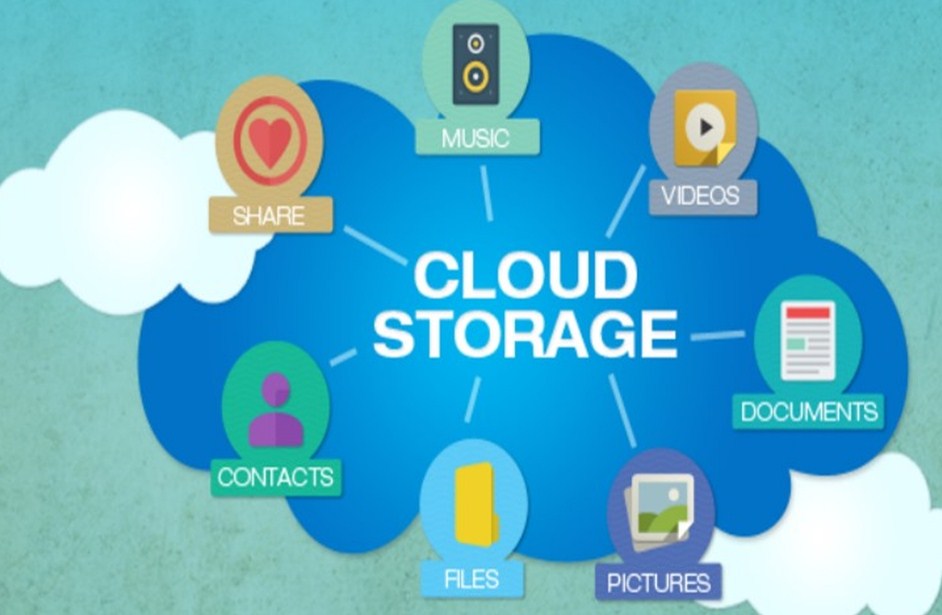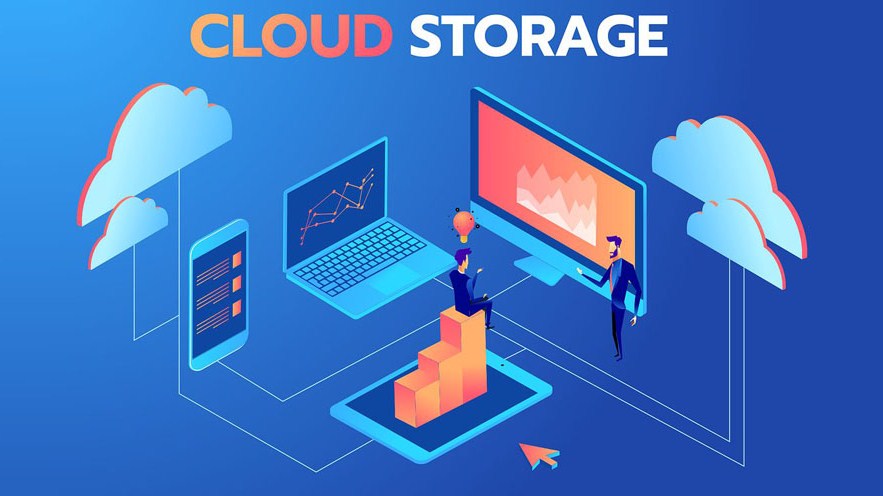Compare the cloud – In today’s digital landscape, businesses of all sizes rely heavily on cloud computing. Cloud services offer flexibility, scalability, and cost-effectiveness, but with so many options available, choosing the right one can be a daunting task. In this article, we will compare the cloud solutions offered by the leading cloud providers, examine their features, benefits, and pricing, and help you decide which service best meets your needs.

Whether you’re an entrepreneur, an IT manager, or someone seeking to understand the different cloud platforms available, this guide will provide valuable insights. We’ll break down the best cloud services for various use cases, so you can make an informed decision.
What is Cloud Computing?
Before we dive into the comparison of cloud providers, let’s take a moment to understand what cloud computing is and how it works. 🌐
Cloud computing refers to the delivery of computing services—such as storage, processing power, networking, and software—over the internet. Instead of maintaining expensive hardware and infrastructure, businesses can access and manage these resources remotely via the cloud. This offers several advantages, including reduced upfront costs, improved scalability, and enhanced collaboration.
Why You Should Compare the Cloud Providers?
With many cloud service providers to choose from, making the right selection can have significant implications for your business. Here’s why comparing cloud services is essential:
- Cost Savings 💰: Different providers offer varying pricing models, and comparing them ensures you get the best value for your money.
- Scalability 📈: Businesses often need to scale up or down depending on demand. The right cloud provider should support this flexibility without incurring unnecessary costs.
- Performance & Reliability 🔒: Cloud services should be fast, secure, and always available. Comparing uptime, service level agreements (SLAs), and customer support can help you find the most reliable provider.
- Features & Integrations ⚙️: Each cloud provider offers unique tools, integrations, and features. Understanding these can help you choose the one that best fits your specific needs.
Top 5 Cloud Service Providers to Compare
We’ll now look at five of the top cloud providers and compare them across various criteria such as use cases, pros and cons, pricing, and features.

1. Amazon Web Services (AWS)
Amazon Web Services is one of the most popular and widely used cloud platforms. It offers a vast array of services, including computing power, storage, machine learning, and more.
Use Case:
Ideal for large businesses, tech startups, and enterprises requiring a flexible, high-performance cloud environment.
Features:
- Compute: EC2 instances for scalable computing power.
- Storage: S3 buckets for data storage.
- Security: Advanced encryption and compliance.
- Analytics: Data processing tools like Athena, Redshift, and Glue.
Pros:
- Extensive global infrastructure
- Wide array of services and features
- Highly customizable for any use case
- Strong security and compliance features
Cons:
- Steep learning curve for beginners
- Pricing can be complex and unpredictable
Price: Pay-as-you-go model with flexible pricing, starting at $0.0116 per hour for a basic EC2 instance.
Comparison Table
| Feature | AWS | Azure | Google Cloud |
|---|---|---|---|
| Best for | Large enterprises and startups | Enterprises and hybrid cloud users | Machine learning and data-driven apps |
| Pricing | Pay-as-you-go, starting at $0.0116/hr | Flexible, starting at $0.008/hr | Flexible, pay-as-you-go, cheaper for data processing |
| Key Features | EC2, S3, Lambda, Redshift, Athena | Virtual Machines, Blob Storage, Cosmos DB | Compute Engine, Kubernetes Engine, BigQuery |
| Security | High, with encryption and IAM | Strong, with Azure Active Directory | Advanced, with Google Cloud IAM |
| Customer Support | 24/7 support, extensive docs | 24/7 support, dedicated advisors | 24/7 support, large community |
2. Microsoft Azure
Microsoft Azure is another key player in the cloud market. It offers a comprehensive suite of cloud services, particularly useful for enterprises that already use Microsoft products like Windows Server and Office 365.
Use Case:
Great for businesses looking for hybrid cloud solutions and seamless integration with Microsoft software.
Features:
- Virtual Machines: Deploy scalable, high-performance virtual machines.
- Azure Active Directory: A cloud identity service for managing users and devices.
- Hybrid Cloud: Seamless integration with on-premises systems.
Pros:
- Excellent integration with Microsoft software
- Strong hybrid cloud capabilities
- Excellent enterprise-level security
Cons:
- Less user-friendly for beginners
- Limited open-source support compared to AWS
Price: Starts at $0.008 per hour for basic virtual machines.
3. Google Cloud Platform (GCP)
Google Cloud is particularly known for its strengths in machine learning and data analytics. If your business heavily relies on data processing, GCP could be the best option.
Use Case:
Ideal for businesses focused on big data, machine learning, and AI-driven applications.
Features:
- BigQuery: A data analytics tool that allows for fast SQL queries on large datasets.
- Kubernetes Engine: Managed Kubernetes clusters for containerized applications.
- Compute Engine: Scalable virtual machines.
Pros:
- Excellent for big data and AI workloads
- Strong focus on developer-friendly tools
- Competitive pricing for data processing
Cons:
- Smaller market share compared to AWS and Azure
- Fewer enterprise-grade features
Price: Starting at $0.01 per hour for a basic instance.
4. IBM Cloud
IBM Cloud offers both public and private cloud options, with a strong emphasis on AI, IoT, and enterprise-level solutions.
Use Case:
Great for businesses looking for a hybrid or private cloud with strong AI and data analytics capabilities.
Features:
- IBM Watson: A set of AI tools for advanced analytics.
- Virtual Servers: Highly scalable virtual machine instances.
- Blockchain: Managed blockchain networks.
Pros:
- Strong focus on AI and machine learning
- Hybrid cloud and enterprise solutions
- Excellent for IoT and blockchain applications
Cons:
- Smaller ecosystem compared to AWS and Azure
- Pricing can be opaque for certain services
Price: Starts at $0.045 per hour for basic virtual servers.
5. Oracle Cloud
Oracle Cloud is known for its enterprise-focused solutions, particularly in database management and ERP systems.
Use Case:
Ideal for large enterprises needing a robust cloud solution with a focus on databases, enterprise applications, and SaaS products.
Features:
- Autonomous Database: AI-powered database management system.
- Oracle Cloud Applications: Cloud-based ERP, HR, and CRM solutions.
- Cloud Storage: Scalable and secure storage options.
Pros:
- Exceptional database solutions
- Strong security and compliance
- Best suited for enterprise resource planning
Cons:
- Not as flexible or affordable for small businesses
- Limited third-party integrations
Price: Pay-as-you-go model, with pricing starting at $0.025 per hour for basic instances.
Benefits of Using Cloud Computing Solutions
1. Scalability and Flexibility
Cloud computing enables businesses to scale resources up or down as needed, allowing for greater flexibility in meeting demands. Whether you need extra computing power during a busy season or reduced services during slower periods, cloud platforms provide the scalability necessary for growth. 🚀
2. Cost Efficiency
By moving to the cloud, companies can reduce the costs associated with purchasing, maintaining, and upgrading hardware. Pay-as-you-go pricing models allow businesses to only pay for the services they use, making cloud solutions more affordable. 💸
3. Enhanced Security
Cloud service providers invest heavily in security, offering advanced encryption, identity management, and compliance features. With regular updates and monitoring, your business data is secure, protected from cyber threats, and compliant with regulations. 🔐
4. Improved Collaboration and Accessibility
Cloud computing enables employees to access data and collaborate on projects from anywhere in the world, making it perfect for remote work environments. 🌍
How to Buy and Where to Buy Cloud Services
You can easily purchase cloud services directly from the provider’s website. Below are the steps to get started:
- Step 1: Visit the official website of the cloud service provider.
- Step 2: Choose your plan (many providers offer free trials or tiered pricing).
- Step 3: Create an account and configure your services.
- Step 4: Make your payment based on your chosen pricing plan.
Here are some links to get started:
- AWS
- Microsoft Azure
- Google Cloud
- IBM Cloud
- Oracle Cloud
FAQs
1. Which cloud service is the best for small businesses?
AWS, Microsoft Azure, and Google Cloud offer great services for small businesses. AWS is popular for its scalability, Azure for integration with Microsoft tools, and Google Cloud for data analytics.
2. Is cloud computing safe?
Yes, cloud computing is safe. Leading providers offer strong security features, including encryption, multi-factor authentication, and regular security audits.
3. Can I switch between cloud providers?
Yes, it’s possible to migrate data and applications between cloud providers, though it can be complex. Ensure compatibility and plan your migration carefully.
4. How much does cloud computing cost?
Pricing depends on the cloud service provider and the services you choose. Most providers offer a pay-as-you-go model, so you only pay for what you use.
5. Do I need to be an IT expert to use cloud services?
Not necessarily. Many cloud services offer user-friendly interfaces and support documentation to help non-technical users. However, understanding the basics can help you make the best decisions.
By carefully comparing the cloud services that fit your needs, you can ensure that your business gets the most out of its cloud computing experience. Remember, scalability, cost-effectiveness, and security are key factors to consider when choosing the right cloud provider!
Read More >>>
- Best Cloud Storage for Business: Top Solutions, Benefits, and How to Choose the Right One
- Solutions, Benefits, and Where to Buy the Best Tools